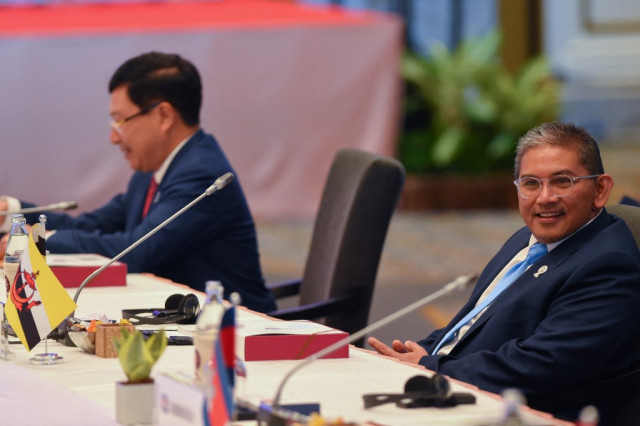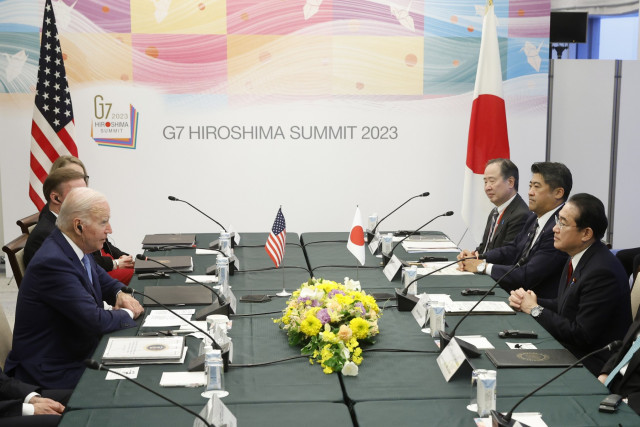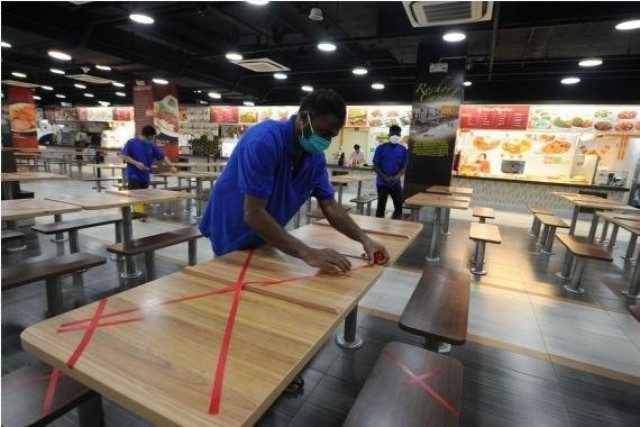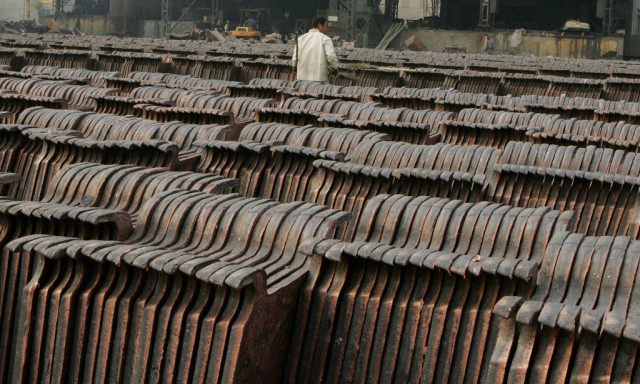Opinion: ASEAN’s Myanmar Envoy Faces Challenging Tasks and an Uncertain Future

- By Cambodianess
- August 10, 2021 3:24 PM
ASEAN’s recent appointment of Brunei’s Foreign Minister II Erywan Yusof will be a litmus test for the bloc’s commitment to addressing the crisis that has engulfed Myanmar, writes Him Raksmey
Last week, all 10 members of the Association of Southeast Asian Nation (ASEAN) reached a consensus to appoint Brunei’s Foreign Minister II Erywan Yusof as the regional bloc’s Special Envoy on Myanmar which has been plunged into deep crises following the February 1, 2021 military coup staged by the Tatmadaw—the Myanmar military.
This marks the first and obvious step of the implementation of the Five-Point Consensus, agreed between ASEAN and the Myanmar junta during the ASEAN Leaders’ Meeting back in April this year. According to the consensus, the special envoy shall facilitate mediation of the dialogue process among all parties concerned in Myanmar. The other four points include the immediate cessation of violence and the exercise of utmost restraint; dialogue among all parties concerned to seek a peaceful solution; the provision of humanitarian assistance through the AHA Centre; the special envoy and delegation shall visit Myanmar to meet with all parties concerned.
The appointment happened after more than three months of intense negotiations within ASEAN. Prior to the consensus, ASEAN could not agree on who to appoint and how comprehensive the role of the special envoy should be. While there were many candidates considered at that time, three figures were frequently raised in news reports namely, Hassan Wirajuda, Indonesia’s former foreign minister, Virasakdi Futrakul, Thailand’s former deputy foreign minister and former Ambassador to Myanmar in 1990s, and Razali Ismail, veteran Malaysian diplomat and former ASEAN envoy to Myanmar in early 2000s.
The Myanmar junta favored the Thai candidate while other ASEAN members had their own different preferences. With the tussle, later on, the name of Brunei’s second foreign minister Erywan Yusof was contemplated and officially put forward for consideration for the role of the special envoy during the 54th ASEAN Foreign Ministers’ Meeting last week. The Tatmadaw representative did not agree at first, but after rounds of negotiations, it reversed its decision and accepted ASEAN’s proposal.
While the special envoy is now identified, it remains to be seen about what Yusof’s specific roles and mandates are. According to the ASEAN joint communique, the special envoy’s tasks include “building trust and confidence with full access to all parties concerned in Myanmar and providing a clear timeline on the implementation of the Five-Point Consensus.”
The document does not underline how the special envoy will perform such tasks and how ASEAN will support him. With the Tatmadaw showing determination to cling on to power, it will be difficult for the ASEAN special envoy to do what the communique laid out.
Despite having no apparent terms of reference, the special envoy himself outlined what he will do in this role. In an interview following the appointment, he said his top priority is to get in humanitarian assistance to Myanmar as soon as possible given the country faces food shortages amidst the surge of COVID-19 cases.
He also added that, “My role is pretty clear as special envoy. That is, talk to all sides to stop the violence, ensure all sides can talk to each other.”
He stressed that he will not impose conditions and cannot push the Myanmar people to accept what they do not want to. He indicated that demanding for the release of the ousted Aung San Suu Kyi is not part of his mandate as the special envoy.
The appointment of the special envoy displays two positive outcomes of ASEAN. It shows that the regional grouping has made some effort to find a political solution to the Myanmar crisis. This is a milestone in which ASEAN has actually translated one of its Five-Points Consensus commitments into action.
Moreover, the appointment of the envoy is another example that ASEAN has acknowledged the important roles of other parties in Myanmar. Even though the opposition civilian groups have not been invited to any ASEAN discussions, ASEAN has still considered them as part of the solution to bring normalcy back to Myanmar. This is also ASEAN’s effort to strike a balance of the grouping’s engagement with the military.
Although there is no concrete achievement yet, ASEAN should be commended for being able to convince the military leadership to agree that the other sides in Myanmar are also concerned parties in the Myanmar crisis.
Nevertheless, challenges remain for ASEAN after appointing the special envoy. Any meaningful paths towards solutions out of the crisis depend heavily on the political willingness and close cooperation from the Myanmar military. This is the biggest obstacle. Early signs about the military’s possible negation of the ASEAN consensus are already visible.
For example, two days after agreeing to the ASEAN Joint Communique over the granting the “full access” to the special envoy, during ASEAN-EU Foreign Ministerial Meeting, the Myanmar military-appointed representative spelled out the military’s position is not to engage with the National Unity Government, which the military considered as the terrorist group, which signals uncertainty surrounding the access granted to the special envoy while in Myanmar.
Regarding humanitarian assistance, it is still unclear if the military will allow the ASEAN Coordinating Centre for Humanitarian Assistance on Disaster Management (AHA Centre) to play the role of a neutral body to distribute aids directly to those in need in Myanmar.
It also raises questions on how the assistance would be delivered equitably across Myanmar, should the military hold firm in demanding to control and oversee aid. This matter has been under speculation for months, while recently, the Welfare Ministry from the Myanmar military side was in discussions with the ASEAN Secretariat over humanitarian assistance.
Secondly, the problem is ASEAN itself. After appointing the special envoy, one question arises: Will Erywan Yusof continue his role as the envoy after the Brunei’s Chairmanship ends and yield to Cambodia when it takes over the ASEAN chair later this year?
Days after the Joint Communique, the Bruneian Second Foreign Minister hinted that he may not continue his role next year and could hand the responsibility over to Cambodia to appoint their own envoy. There is a need for ASEAN to discuss this issue in-depth to find agreeable mechanisms, so as to ensure smooth and timely transition from one special envoy to another.
Moving forward, ASEAN should speed up the team building around the envoy in order to perform tasks to help Myanmar constructively. There is a report suggesting that Special Envoy Erywan Yusof will be assisted by the “Troika Plus One” team, which includes Cambodia, Indonesia, and Thailand. If the team is assembled rapidly, this would show ASEAN’s collective resolve in dealing with the Myanmar crisis and would help provide more convincing abilities to the special envoy in fulfilling its mission.
More than that, ASEAN should continue to engage with other dialogue partners and strive to involve all concerned parties on the ground to join hands together working on channeling humanitarian assistance to those who in need in Myanmar. Political settlement might take time, but it is urgent to help the people who are in suffering amidst the erupted violence, lack of basic necessities and lately the spreading of COVID-19.
Appointing the special envoy is the first welcoming sign towards the implementation of the Five-Point Consensus to help Myanmar return to normalcy. While we should not be naïve in believing the special envoy can perform miracles in help easing the crisis overnight, it is more important that the position is utilized to the fullest in order to stop the violence and help save lives in Myanmar.
Him Raksmey is Research Fellow at the Cambodian Institute for Cooperation and Peace (CICP) and Member of the Network of Friends to R2P-Cambodia. The views expressed are his own and do not represent his affiliations.















